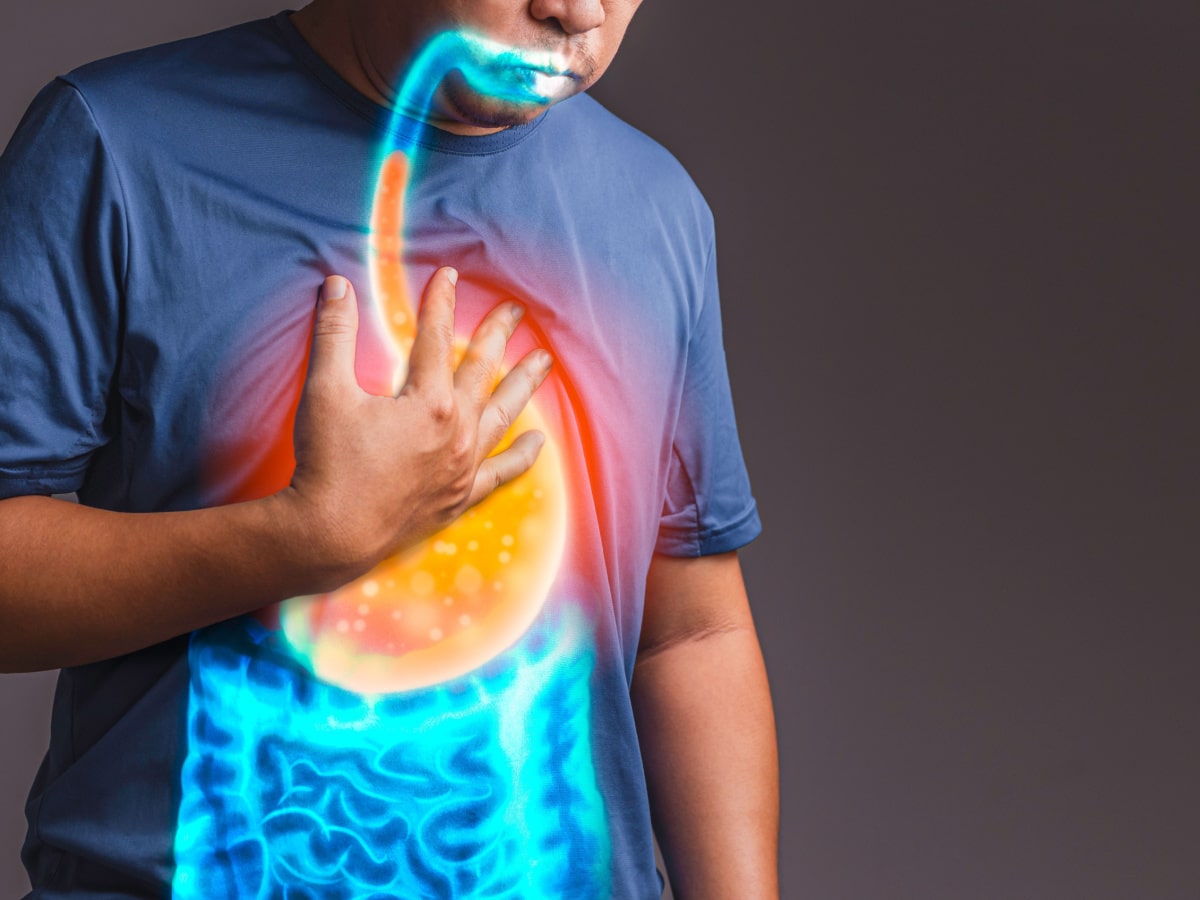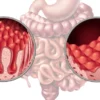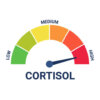
What is SIBO?
SIBO (Small intestinal bacteria overgrowth) is a digestive condition that involves changes in the gut microbiome. While the large intestine is densely populated with microbes, the small intestine has a lower concentration.
However, in SIBO, this condition involves an overgrowth of gut bacteria in the small intestine.
This can lead to many of the same symptoms that are typically seen in IBS.
These symptoms include:
What Causes SIBO?
There are many factors that may cause or increase the risk of developing SIBO.
These include:
- Proton pump inhibitor medication
- Opioid medication
- Gastric bypass
- Dysmotility
- Colectomy
- Low-grade inflammation
These factors lead to changes in the small intestinal ecosystem which creates an environment that allows bacteria to grow.
For many with this condition, while a treatment to reduce the bacteria may be helpful, these risk factors need to be addressed also. If not, it is common for symptoms to reoccur. [Source: PubMed]
SIBO has also been found to be more prevalent in women and older patients. [Source: PubMed]
Can SIBO cause acid reflux symptoms?
Those with SIBO have a high rate of acid reflux symptoms.
Other conditions associated with SIBO include; restless leg syndrome, Parkinson’s disease, diabetes, small bowel diverticula, pancreatitis, hypothyroidism and abdominal surgery. [Source: PubMed]
Does omeprazole cause SIBO?
It has also been found that the use of PPI medication (such as omeprazole) can increase the risk of developing SIBO.
This is due to how PPI medications reduce levels of stomach acid which in turn alters the pH of the small intestine. This then alters the environment in the small intestine, allowing more bacteria to grow. [Source: PubMed]
Should I stop taking omeprazole if I have SIBO?
When addressing SIBO, a key part of treatment is understanding the risk factors that have led to the overgrowth. For some, it’s possible for a single risk factor to lead to SIBO developing, for others a combination of risk factors may contribute to the conditions.
One risk factor for developing SIBO is the use of PPI medication such as omeprazole. [Source: PubMed]
Before discontinuing any prescribed medication, it is important to consult with the prescribing doctor.
How to test for SIBO
The 2 main tests that are considered for SIBO are a duodenal aspirate and culture and a SIBO breath test.
The aspirate and culture is a test that involves removing a sample of the fluid from the small intestine, which is then assessed. While this is the most reliable test for SIBO, it’s not carried out in routine clinical practice.
There are also limitations to this test which include its invasive nature, the costs associated as well as the inability to culture some of the organisms potentially present in the small intestine. [Source: PubMed]
The most commonly used test for SIBO is the SIBO breath test. This test involves consuming a carbohydrate solution (either lactulose or glucose), which is fermented by the gut microbes. The gas then produced is absorbed into circulation before being exhaled and collected in sample collection tubes.
The levels of the gasses (hydrogen and methane) are then measured to provide a diagnosis. This test can be considered an indirect way of measuring the gut bacteria. This means the levels of bacteria are being inferred from the amount of gas being produced in the gut. [Source: PubMed]
Can gut bacteria cause acid reflux?
Changes in the gut bacteria are commonly seen in those with acid reflux and heartburn.
A 2021 study found that two-thirds of participants with reflux tested positive for SIBO. This indicates that alterations in the gut microbiome can contribute to upper GI symptoms as well as lower GI symptoms, such as bloating.
Levels of hydrogen gas produced in the small intestine, as noted in SIBO testing, are more associated with reflux symptoms. This may be due to the increased gas being produced in the small intestine, which may travel upwards through the stomach into the oesophagus, contributing to reflux, belching, and regurgitation. [Source: Springer]
What does a SIBO flare-up feel like?
A flare-up in SIBO symptoms can feel very similar to what is experienced during a flare-up in IBS symptoms.
This can include an increase in symptoms such as:
- Abdominal pain
- Bloating
- Distention
- Flatulence
- Diarrhoea
- Reflux
Depending on the sensitivity of the gut, these symptoms can vary in severity. [Source: PubMed]
How do I know if I have SIBO or gastritis?
SIBO and gastritis are both digestive conditions; however, their symptoms are different. There are also different tests that can help identify the cause of symptoms.
As mentioned in this article, the symptoms of SIBO are typically what is also seen in IBS.
SIBO impacts the small intestine and leads to symptoms that include:
- Bloating
- Abdominal pain
- Food intolerances
- Flatulence
- Weight loss
- Diarrhoea [Source: PubMed]
Gastritis, on the other hand, involves inflammation of the stomach. While this can also lead to digestive symptoms, vomiting, feeling sick, and indigestion may help to initially differentiate this condition from SIBO. [Source: NHS]
Also Read: How To Relieve Gastritis Buring Pain
What are the first signs of SIBO?
There isn’t a single sign that indicates SIBO may be the cause of symptoms, but there are a range of symptoms that may highlight the need to test for SIBO.
One of the initial indicators that SIBO may be an issue is that bloating occurs within 1-2 hours of eating certain foods. These foods can be high in certain fibres, which may be fermented in the small intestine if there is a bacterial overgrowth in that section of the bowel. [Source: PubMed]
Other possible signs of SIBO include:
- Abdominal pain
- Flatulence
- Weight loss
- Constipation or diarrhoea
- Vitamin deficiencies [Source: PubMed]
While reflux isn’t the most common symptom of SIBO, it is known that imbalances in the gut microbiome can lead to reflux. [Source: Springer]
Conclusion
SIBO is a condition that can cause a range of gut symptoms similar to IBS symptoms.
While reflux and heartburn are not standard symptoms or a symptom required for an official diagnosis of IBS, they can be common in those with gut issues.
This is understood to be due to alterations in the gut bacteria in the small intestine leading to changes in the upper GI tract. Even without an overgrowth of bacteria, it’s possible for an imbalance of bacteria (referred to as dysbiosis) to lead to symptoms very similar to SIBO.
Working to address the underlying causes of symptoms is often best carried out with the support of a registered gut health practitioner.






